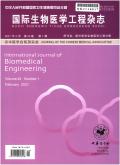Expression of ACSL4 in gastric cancer tissues and its correlation with prognosis
引用次数: 0
Abstract
Objective To detect the expression of ACSL4 in human gastric cancer tissue and to analyze its clinical significance. Methods The bioinformatics method was used to analyze the mRNA level of ACSL4 in gastric cancer tissues and normal tissues, and to analyze the relationship between its expression and disease-free survival rate of gastric cancer patients. The clinical and pathological data of 62 patients with gastric cancer who underwent surgical treatment were retrospectively analyzed. Immunohistochemistry was used to detect the expression of ACSL4 protein in gastric cancer tissues and adjacent tissues, and to analyze its relationship with clinicopathological characteristics of gastric cancer patients. Results The results of bioinformatics analysis showed that the mRNA of ACSL4 was significantly overexpressed in gastric cancer tissues, and was significantly related to the disease-free survival rate of patients. Immunohistochemical results showed that ACSL4 was mainly cytoplasmic and highly expressed in gastric cancer tissues, while low or no expression in adjacent tissues. The protein expression level of ACSL4 was related to tumor size and pTNM (all P 0.05). Conclusions The expression of ACSL4 in gastric cancer tissues is abnormally increased, and it is related to tumor size and pTNM stage. The results of this study suggest that the expression of ACSL4 is related to the prognosis of patients. Key words: Gastric cancer; Immunohistochemistry; ACSL4; pTNM staging; PrognosisACSL4在胃癌组织中的表达及其与预后的关系
目的检测ACSL4在人胃癌组织中的表达并分析其临床意义。方法采用生物信息学方法分析胃癌组织和正常组织中ACSL4 mRNA水平,分析其表达与胃癌患者无病生存率的关系。回顾性分析62例胃癌手术治疗的临床及病理资料。采用免疫组化方法检测ACSL4蛋白在胃癌组织及癌旁组织中的表达,分析其与胃癌患者临床病理特征的关系。结果生物信息学分析结果显示,ACSL4 mRNA在胃癌组织中显著过表达,并与患者无病生存率显著相关。免疫组化结果显示,ACSL4主要在胃癌组织中呈细胞质高表达,而在癌旁组织中低表达或不表达。ACSL4蛋白表达水平与肿瘤大小、pTNM相关(均P < 0.05)。结论ACSL4在胃癌组织中表达异常增高,且与肿瘤大小、pTNM分期有关。本研究结果提示ACSL4的表达与患者的预后有关。关键词:胃癌;免疫组织化学;ACSL4;pTNM分期;预后
本文章由计算机程序翻译,如有差异,请以英文原文为准。
求助全文
约1分钟内获得全文
求助全文

 求助内容:
求助内容: 应助结果提醒方式:
应助结果提醒方式:


